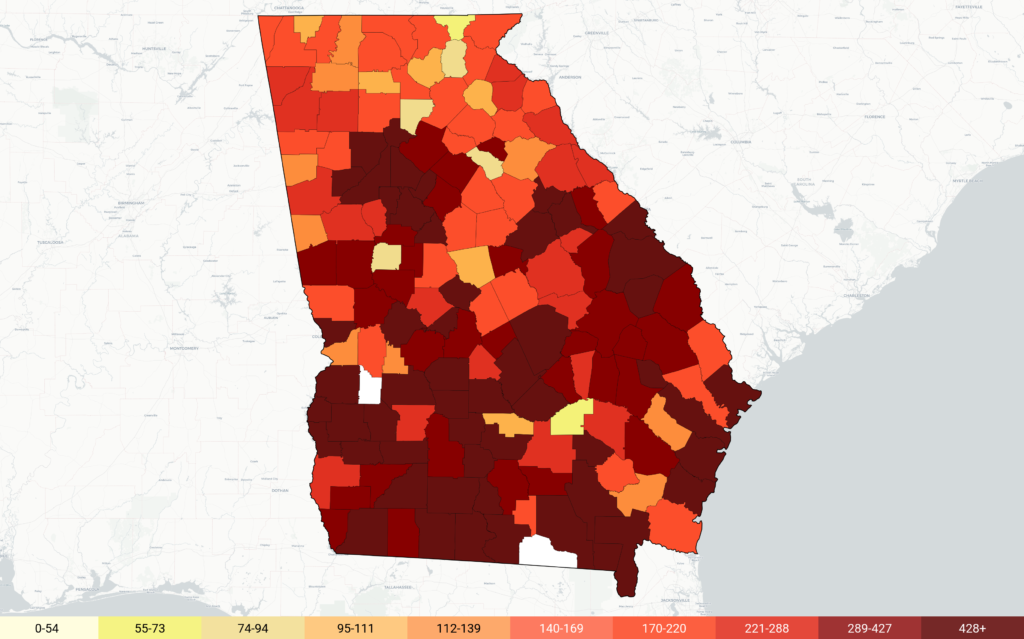
ATLANTA — Gov. Brian Kemp has signed into law a bill that modernizes some of Georgia’s rules around HIV-status disclosure.
Under the prior law, any person living with HIV who did not disclose positive HIV status prior to a sexual act could face a felony charge punishable by up to 10 years in prison, according to Georgia Equality, an LGBT advocacy group.
The revised law is narrower in scope. Now, Georgia law penalizes only those sexual acts performed by a person living with HIV “with the intent to transmit HIV” when the act “has a significant risk of transmission based on current scientifically supported levels of risk transmission.”
Such incidents could still be punished as felonies, but the maximum punishment has been reduced to five years.
The bill also excludes punishment when a person living with HIV is forced to perform a sexual act against his or her will, as in cases of sexual assault or rape.
State Sen. Chuck Hufstetler, R-Rome, initially sponsored the bill in the Senate. It was strongly supported by Georgia Rep. Sharon Cooper, R-Marietta, the chair of the House Health and Human Services Committee.
The bill passed the Senate with just two “no” votes before clearing the House unanimously.
“The current HIV laws were written in the 1980s,” Hufstetler said Wednesday. “They really didn’t distinguish between HIV and AIDS [and] criminalized hypodermic needles and syringes.
“I’m hoping that laws that align with public health best practices will contribute to better control of individuals that have obtained [HIV] and also a reduced infection rate. As an anesthesia provider in the medical community, I believe it’s my responsibility to correct these things in laws when I become aware of them,” Hufstetler said.
“As a person living with HIV, I’m encouraged that the [Georgia] legislature understands the advances in HIV science,” added Malcolm Reid, coalition co-chair and federal policy chair for People Living with HIV Caucus, in a press release. “Ending the stigma around HIV is a necessity to ending the HIV epidemic.”
The new law will “hopefully will result in fewer convictions,” said Catherine Hanssens, the executive director for the Center for HIV Law and Policy in New York.
“At the same time, the law is still HIV-specific, singling out people living with HIV for uniquely negative treatment in a way that other serious and incurable diseases are not…There is still work to be done,” Hanssens added.
The change to Georgia law reflects advances in HIV treatment, especially the development of drugs that can suppress the amount of virus in the blood, also called the “viral load.”
Drug regimens can effectively suppress the amount of virus in the blood to very low or even undetectable levels, according to the federal Centers for Disease Control (CDC).
“If you have an undetectable viral load, you have effectively no risk of transmitting HIV to an HIV-negative partner through sex,” according to the CDC website. Most people who follow the appropriate drug treatments can reach an undetectable viral load in just six months, the agency says.
There were 56,466 people living with HIV in Georgia in 2019, according to AIDSVu, an online tracking tool based at Emory University in Atlanta. Of those, about two-thirds, or 33,370, had achieved viral suppression, or very low levels of virus in the blood.
Most Georgia cases were transmitted by sexual contact, but around 7% of cases in Georgia are attributable to injecting drugs, according to AIDSVu data.
The bill also changes Georgia law so that distributing hypodermic needles or syringes is no longer punishable.
This story is available through a news partnership with Capitol Beat News Service, a project of the Georgia Press Educational Foundation.